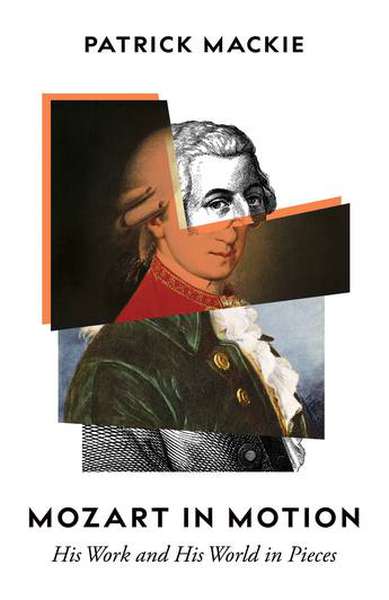Wolfgang Amadeus Mozart is widely portrayed as a self-contained musical genius, a prodigy that effortlessly managed to pump out an endless array of masterworks. What makes Patrick Mackie’s book on Mozart an intriguing piece of the literary canon of Mozart is that it offers insight on his worldly dealings, his writing process, the rehearsals, negotiations, travels, et cetera.
Mozart in Motion paints a picture of a man that was comprised of inspiration and perspiration in equal parts, who was so immensely immersed and well-versed in the classical genre that he could fall back on standards when inspiration lacked as the traversed the chasm between pleasing his masters that financed his lifestyle and entrepreneurial endeavours.
By contextualising Mozart and his oeuvre within the context of an age of transition towards modernity, Mackie’s chronologically structured, essayistic and at times kaleidoscopic narrative aids in understanding the man behind the myth and accomplishes the feat to have us experience Mozart’s cosmos and his approach to composing from a new and fresh angle.
Mackie’s music literacy adds depth to his observations of how Mozart both paid tribute to musical conventions as well as challenged them, especially when Amadeus’ disdain for what he perceived to be his mediocre and disinterested audience comes to pass, by describing in words what normally only musical notation can convey, with each chapter of Mozart in Motion being dedicated to a particular composition or group of compositions: The tension between Mozart’s volatile and individualistic nature and the willingness to compromise and align with prevalent conventions is what Mackie deems to be the fuse that propelled Mozart ahead of his contemporaries.
A thought-provoking book that I would recommend to any musician and one to be enjoyed one chapter at a time – ideally while being serenaded by the master himself.



